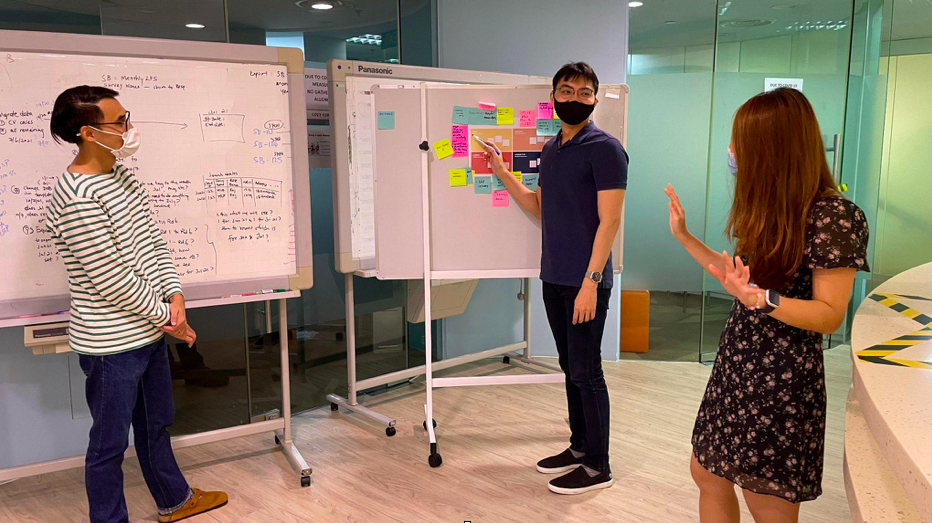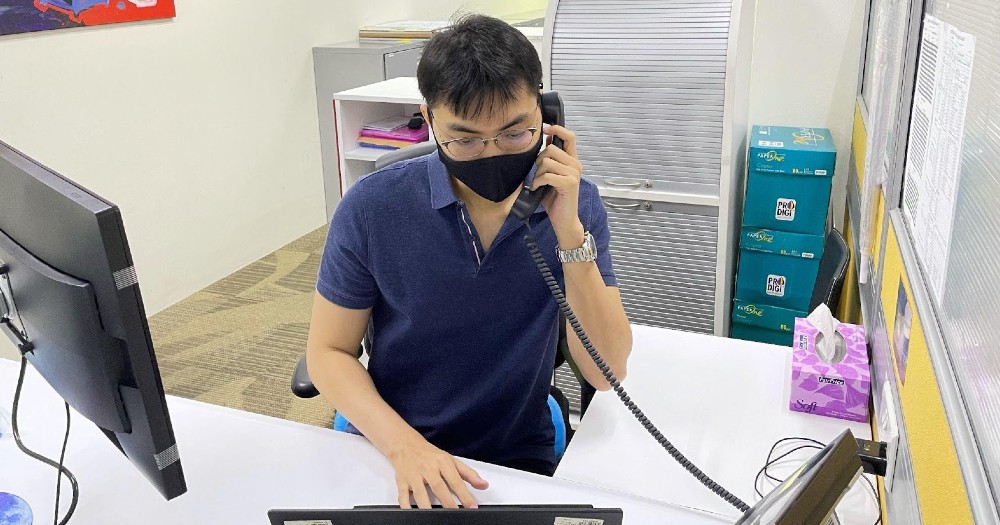Singaporeans instinctively shy away when approached for information.
Generally, most of us are skeptical and distrusting of strangers who try to start conversations with us.
For Chairat Tan, however, seeking information from strangers is part and parcel of his daily work, and requires just the right mix of approachability and tenacity when he has to make 45 calls and 20 house visits daily before the pandemic.
He’s a Data Collection Officer for the Manpower Research and Statistics Department (MRSD) at the Ministry of Manpower.
“I used to work as a Survey Interviewer and a Survey Supervisor. My role allowed me to interact with individuals from all walks of life, and also gave me the opportunity to lead my own team of surveyors,” explains the cheery gent, who gradually climbed his career ladder at MRSD.
He soldiers on despite the tough challenges of his job because he recognises the fruits of his labour.
As a Survey Interviewer, he aided respondents in their survey submissions and would explain to them how the collected data assists in manpower policy making.
When he progressed to Survey Supervisor, his role evolved to coaching Survey Interviewers, and directing enquiries and feedback from respondents and interviewers to the right channels.
Meaning and purpose
Tan highlights that the information he collates goes a long way in benefitting society: “Many manpower policies have been formulated using our survey data. The Workfare Income Supplement (WIS) scheme is one such policy. It disburses cash and CPF payouts to over 400,000 lower-wage workers, so they have more for their retirement and can better tide over the COVID-19 situation.”
He recounts a time when he was returning home from work, his neighbour, knowing the work that he does, thanked him for contributing to the development of the WIS scheme.
“My neighbour was grateful because his family was able to tide through this tough time with the extra income,” he says.
Tan divulges that he enjoys talking to respondents from all walks of life, who sometimes share their personal stories and struggles with him. Naturally, he empathises and does his utmost to help.
“I remember one respondent calling our hotline to complete a survey. He shared about his financial situation and that he had only $600 left in his bank account. He needed to feed his family of five, so he had resorted to borrowing money from friends and relatives,” reveals Tan.
“He shared that he had difficulty finding a job due to a minor speech impediment and requested for my help in looking for a job. I assisted him by recommending a few job search platforms, such as the MyCareersFuture.gov.sg portal and NTUC’s e2i.
A few months later, he called me back to share that he had found a job as a condominium security guard. He was grateful for the assistance and relieved that he was able to provide for his family. It made me realise how important my job was in giving someone in need a hand.”
Tan plays down the good that he has done over the three years in the MRSD, citing that realising the importance of his job from heart-warming moments like these has renewed his commitment to his civil service role time and again.
Invaluable experience
“My minor contributions have an impact on members of the public. At first, I thought I was just crunching numbers. After my neighbour thanked me, I realised that there are thousands more who are benefitting from my work as well,” he discloses.
Tan shares that although he enjoyed working on the ground, he was also keen to explore other areas of survey operations planning and to learn new skills. When the opportunity to progress to a Statistical Executive role presented itself, he applied for it and got it.
Most importantly to him, his new position allows him to continue doing what he enjoys and apply his past experience.

“As a Statistical Executive, on top of the collection of data, I would also require an analytical mindset. We are encouraged to constantly upskill ourselves. This year, I am picking up technical skills, such as R and Python Programming, to analyse data, and creating dashboards using PowerBI and Tableau to better present data,” he elucidates.
Such data analytic tools boost efficiency in data collection and help Tan plan better plan his tasks and resources allocation, especially when he has to map the locations for his interviewers to visit.
How to differentiate the good guys
Tan recognises that the legitimacy of an MOM data collection officer is the top concern among interviewees.
If in doubt, he encourages members of the public to verify interviewers’ unique IDs, which they can key into the MOM hotline, or request for interviewers’ MOM-issued identification card for face-to-face interviews.
“Legitimacy of the data collection officer is critical in building trust with the interviewees whose responses will be interpreted into reliable data points that then play a big part in shaping manpower policies. These findings give us a better understanding of evolving societal needs and help us better existing policies or develop new ones. What's important for me is that I enjoy what I do and I am aware of its importance and impact it has on our society."
All photos from MOM
Work in Progress is a sponsored series by MOM which has officers like Tan who, in his work, helps shape better policies for Singapore.
If you like what you read, follow us on Facebook, Instagram, Twitter and Telegram to get the latest updates.
